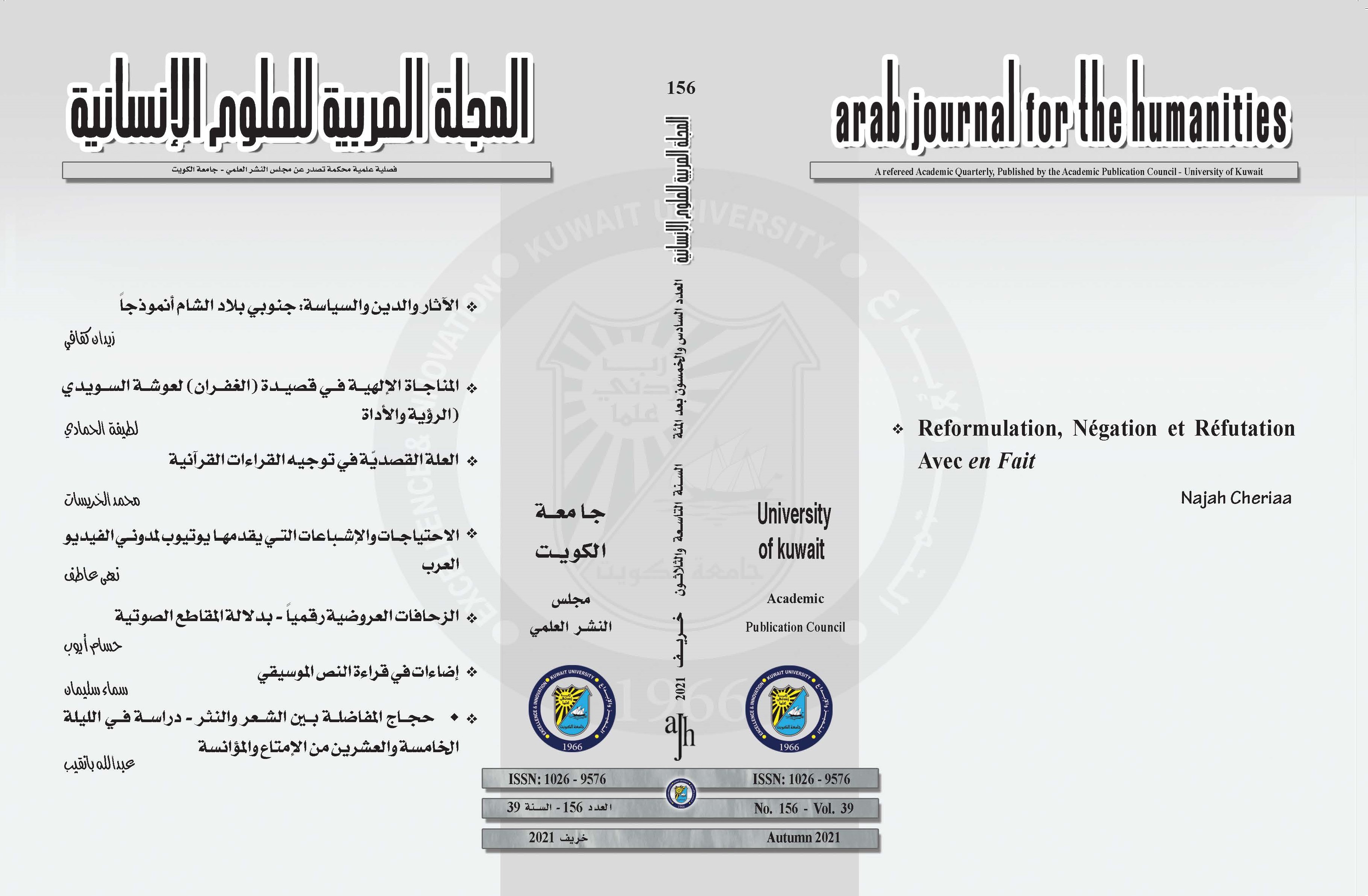‘The Purposeful Justification Method’ in Guiding the Holy Quranic Readings.
Mots-clés :
Purposefulness, directing, readings, context, pragmatics, functionalityRésumé
The aim of this study is to offer a conception on the purposeful realization in the Arabic language through directing the Arabic language scholars towards the different readings of Qur’anic verses.
Scholars specializing in the guided reading of the Holy Quran used all the potential that can enable them to conflate the different Holy Quran readings. Purposefulness was one of those guiding reconciliatory tools that they have adopted. This study reveals the elements and manifestations of ‘linguistic purposefulness’ which the Arabic language scholars have drawn upon in their steering efforts, especially when controversial readings occur in different places in the Holy Quran.
This study adopts the inductive approach that looks into all sorts of Qur’anic exegeses to study the directional purposeful cues and clues, which enabled offering the most important thoughts and principles of modern ‘linguistic purposefulness’.
The study has arrived at a number of conclusions such as the relationship between purposefulness and syntactic guidance stem from a general conception that the speakers' intentions govern the direction of the spoken language. Moreover, ‘the principle of purpose’, from the perspective of our ancient scholars, has to do with the communicative purpose that the speaker wants to achieve in any given discourse. Our ancient scholars were aware of the basic principles of in-use purposeful thinking and its effect on language structures. The Arabic in-use purposeful thinking consists of a group of elements: context, embeddedness, meaning, entailment, citation, specification and semantic functionality.
The scientific legacy, which ancient Arab scholars left to us, must be reviewed in all scientific fields because a lot of modern science principles are based on it and modern studies need to be re-evaluated according.
















